Post-revolutionary Ukrainian society displays a unique mix of hope, enthusiasm, social creativity, collective trauma of war, radicalism and disillusionment. With the Maidan becoming history, the focal point ‘Ukraine in European Dialogue’ explores the new challenges facing the young democracy, its place in Europe, and the lessons it might offer for the future of the European project.
This focal point stems from the project ‘Ukraine in European Dialogue’ at the Institute for Human Sciences (IWM) in Vienna. The focal point is edited by Mariia Shynkarenko at the IWM. From 2018 to 2024, it was edited by Katherine Younger, and from 2016 to 2018 by Tatiana Zhurzhenko. Further texts have been contributed by journals in the Eurozine network.

In collaboration with
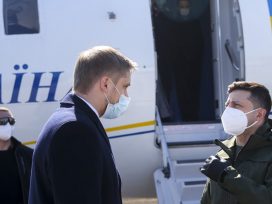
When trust defines everything
COVID-19 in a polarized Ukraine
The Ukrainian government’s pandemic response has got dramatically different reviews. The Zelensky administration declared a strict lockdown early on and has mobilized big business, enjoying wide popular support, but anti-corruption activists and established intellectuals remain suspicious. Nataliya Gumenyuk asks who to trust.
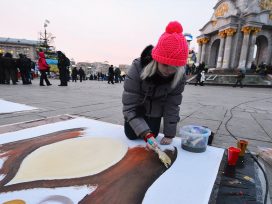
Hopes and dreams of the bigger world
Ukrainian art since Maidan
Maidan set art free from the fight for the political agenda, since everything has become a part of the political agenda. On the other hand, the rapidly accelerating political and geopolitical changes brought several challenges for artists.
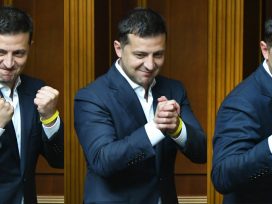
Volodymyr Zelensky’s rise to power in Ukraine has left many observers confused. An influential cultural operative for decades, he has been written off as a clown, despite strong popular support and his rapid first reforms suggesting otherwise. Now the task for the Zelensky team is to deliver on the high hopes they have built their campaign on.
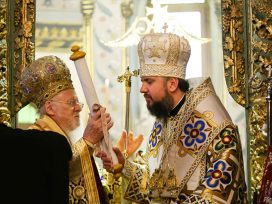
The January 2019 creation of an autocephalous Orthodox Church of Ukraine, independent of Russian religious and political power, has produced tensions at home and in the wider Orthodox world. Presented by the Poroshenko regime as a patriotic symbol, it has yet to establish itself as the dominant Ukrainian church. Moscow’s efforts to undermine the OCU have hindered its recognition globally, though the tide may be turning and the church’s future depends on how it meets these challenges.
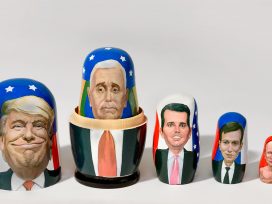
Damage done
The Trump–Ukraine controversy in perspective
Coverage of the Trump–Ukraine controversy has focused on the political fall-out in the US. But the harm done to Ukraine may be much more severe and enduring. Not only has US military aid been made conditional, but even worse: the credibility of the US as ally and example in the fight against corruption has been destroyed, writes the head of Hromadske TV.
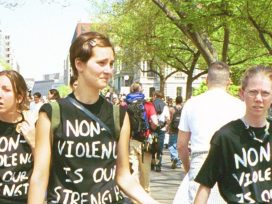
Violence and anti-violence
Ukraine between Russia and Europe
Western Europe’s culture of anti-violence continues to exert a magnetic pull on Ukrainian society. But will that be enough to resist Russia’s twenty-first century politics of dog-eat-dog? The answer depends on the strength of Europe’s own conviction, argues philosopher Volodymyr Yermolenko.
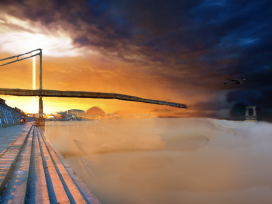
The trope of building bridges between peoples on opposing sides of a conflict often seems compelling, and infers an inevitable benevolence. Yet Mykola Riabchuk considers the strategy itself to be misguided, especially when those bridges actually separate people instead of bringing them together.
What could have happened had a local war for Lviv not drawn forces away from the Ukrainian revolution in 1918? Experimenting with counterfactual history allows us to reconsider simple questions and search for more precise answers.
Security over liberty?
The double threat to Ukrainian democracy
Five years after the revolution at Maidan, Ukraine faces a very limited choice: either giving in to Russian aggression or tolerating domestic corruption. Martial law was recently imposed after Russia blocked the Azov Sea, yet official reasons for the state of emergency seem to disguise political power play.
For Oksana Forostyna, memories of Maidan mingle with accounts of her grandmother’s life in Kyiv before and during World War Two. Recollections of her own search for happiness in her adoptive city lead to more universal questions about the possibility of freedom and love amidst conflict and war.
There is little hope for the release of Ukrainian political prisoners in Russia during the World Cup. However, Oleg Sentsov’s hunger strike will not have been in vain if it causes people to question the platitude that ‘sport is above politics’.
In May, fifty years on from the events of 1968, the ‘The Kyiv International – ’68 NOW’ project reflected on the political and cultural heritage of the revolt and struggle of that year. In particular, the project’s curator and the head of Kyiv’s Visual Culture Research Center (VCRC) Vasyl Cherepanyn asks, where is the idea of internationalism today?
How Right is the Left?
The German radical Left in the context of the ‘Ukraine crisis’
In 2014 Ukraine suddenly became a major focus of the western radical Left. The subsequent degree of overlap between radical-left and far-right interpretations and activities of the events in Ukraine has been striking. How to explain this? A good place to start, argues Kyrylo Tkachenko, is Germany.
‘Post-truth’ is a concept that has been much discussed in recent years. But what is it like to experience its effects for real? Mykola Balaban, a history student and soldier, describes how it feels to be attacked with ‘non-existent’ rockets, and how one can come to doubt even one’s own empirical experiences.
Ukrainian officials are trying to attract European investors to their country by stressing its low cost base and well-qualified workers. But as Artem Gergun notes, millions of Ukrainian citizens have grasped that these advantages are portable – and, rather than waiting for Europe to come them, are heading there for themselves.







